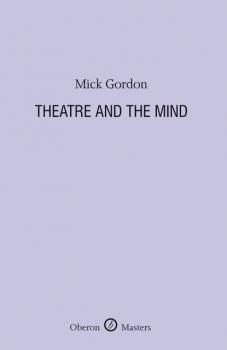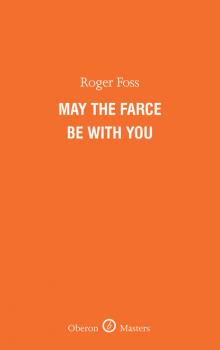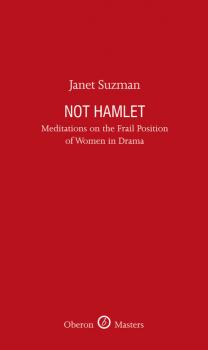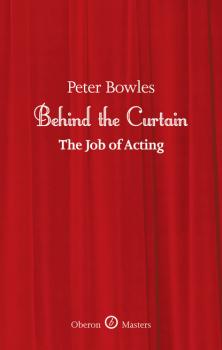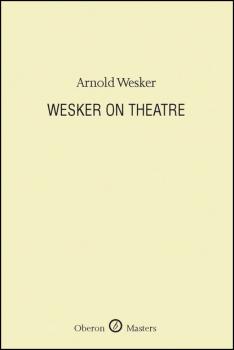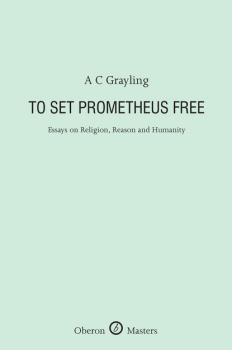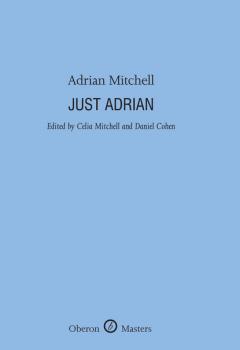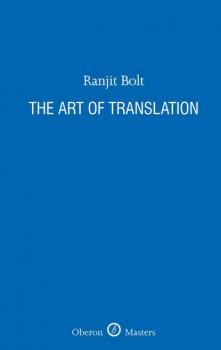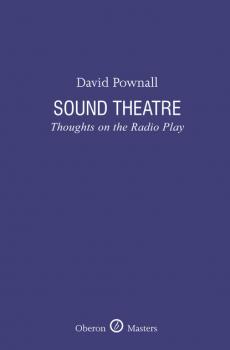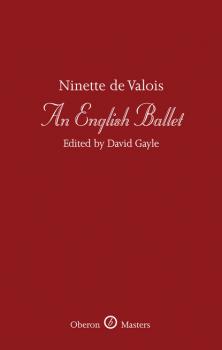Oberon Masters Series
Скачать книги из серии Oberon Masters SeriesTheatre and the Mind
In this collection of seven provocative essays, acclaimed theatre director and playwright Mick Gordon argues that the theatre represents a physical corollary of the invisible workings of our minds.In this publication the award-winning Gordon draws upon his five years experience working with leading neurologists and cognitive psychologists, a period during which he produced two plays exploring the neurological basis of identity and emotion. Gordon contends that the narratives and archetypes common to the theatre reflect the hidden paradigms of our minds, and that theatrical exploration echos our subconscious urge for morality.
May the Farce Be With You
It seems a long way from Molière to Ray Cooney.There are immense distances between the worlds ofAristophanes, Plautus, Georges Feydeau, Ben Travers,Joe Orton and Basil Fawlty. But as one of the oldestgenres in the history of the theatre, farce bridges thegaps by generating gales of helpless belly laughteracross the generations.Inspired by John Mortimer’s observation that farce is‘tragedy played at a thousand revolutions a minute’,Roger Foss embarks on a lightning tour of therib-tickling world of confused characters, absurdsituations, ruined reputations, sexual innuendo andbravura comic acting and finds out if farce really is aforce to be reckoned with in the 21st century.The great creators and performers of farce arecelebrated, most notably master farceur Ray Cooney,who celebrates his 80th birthday in 2012, in essaysthat will inform and entertain both the aficionadoand anyone with a sense of humour.
Not Hamlet
Shakespeare’s Cleopatra, La Pucelle, Ophelia, Shaw’s St Joan and Ibsen’s Hedda – a handful of ‘seminal’ roles for women in the classical canon. Janet Suzman has played them all and directed some. Here she examines their complexity and explores why only Cleopatra has an independence that allows her to speak to modern women. None of these, regrettably, matches up to a Hamlet, but as she is grateful for the parts he did write, Suzman feels a lightly-barbed attack on those who work in theatre and doubt Shakespeare’s authorship is way overdue. She also takes issue with received ideas on boy actors playing mature women in Shakespeare’s company, and refl ects on how female characters in classical drama have not been on a level with their male counterparts. Today, on TV, fi lm and the stage, this remains the case. Not Hamlet but Hamlette, please.
Behind the Curtain: The Job of Acting
Peter Bowles invites us backstage to witness the job of acting as it really is. This is a warm-hearted look at the lived experience of a jobbing actor – and a survival guide to anyone thinking of entering this most emotionally gruelling of industries. Behind the Curtain is the inside scoop on ‘the profession’ as told by a master raconteur – one who has trodden the boards in the West End for five decades. Armed with an array of classic anecdotes, Bowles shares some of the infamous ad-libs, opening night disasters and dressing room dramas that he has been party to over the years. Full of sage advice about the pitfalls of celebrity and the fluctuating fortunes of an actor – and his own journey from TV stardom to the labour exchange and back again.With tales of some biggest personalities in the history of showbiz such as Michael Gambon, Noel Coward, Rex Harrison, Laurence Olivier & John Gielgud, this is a book that captures the acting profession in all its eccentric glory.
Wesker on Theatre
Wesker On Theatre is a collection of essays by one of Britain's most well-known, prolific and controversial writers, which explores his thoughts on drama and the theatre gained from a writing career that spans fifty years.Wesker brings together for the first time an assortment of theatre pieces exploring such subjects as The DNA of a Play; The Nature of Dialogue; The Nature of Development; Can Playwrights be Taught to Write Plays; Interpretation – To Explain or Impose , and many others that attempt to elucidate the shifts of thought he has negotiated throughout his long career. Often controversial, Wesker On Theatre is a challenging and thought-provoking volume.
To Set Prometheus Free: Essays on Religion, Reason and Humanity
In 2007 Anthony Grayling wrote Against All Gods , a collection of polemical essays attacking religion. Now in To Set Prometheus Free he develops those themes more comprehensively, unpicking the claims and arguments of religious apologists, summarising the views of his fellow secularist (Bertrand Russell in particular detailing the controversy over 'Intelligent Design' and outlining his personal, naturalistic world-view.He robustly calls for humanity to choose deliverance from religion because, as he puts it, 'large portions of mankind remain in some degree in thrall to myths dating from an ignorant and illiterate past.'
Just Adrian
Just Adrian is a patchwork tour of a legendary playwright, poet and activist’s life in the theatre. It is a fascinating first-hand account of groundbreaking productions featuring figures like Kenneth Tynan, Peter Brook and Peter Hall as well as adventures in alternative theatre. These writings explore Adrian’s many interests, from drama for children to musical theatre, in a voice that combines playful irreverence with compassion and insight. Taken together, they are a funny, moving testament to a great theatre lover. “A window into the soft and beautiful genius that was Adrian Mitchell.” – Camden New Journal “A tribute, an autobiography and a quirky portrait.” – The Stage
The Art of Translation
‘I try to follow the rule laid down by perhaps the greatest translator of all, John Dryden, who maintained that a translator should – and I paraphrase – make the version as entertaining as possible, while at the same time remaining as faithful as possible to the spirit of the original’ – Ranjit Bolt.In this book, Ranjit Bolt takes what is essentially a practitioner's view of the art of literary translation. His observations are born of a quarter of a century's experience of translating for a living, especially for the theatre. While rooted in practice, however, this survey does not shy away from theory, but is packed with allusion to great translation theorists such as Walter Benjamin and John Dryden, as well as adumbrating Bolt's own theoretical stance.‘There is much practical good sense in this engaging, good-humouredapologia pro domo’ – Times Literary Supplement ‘If you’re interested in writing plays you need to read The Art of Translation . Even if you have no intention of translating a play Bolt has a lot to teach about how dramatic language works.’ – The Stage ‘Bolt’s essay is provocative and engaging, drawing heavily on twenty years of direct first-hand experience as the writer of some of the most lively modern translations of classical into English… Bolt has a very satisfying turn of phrase, and the book is full of teasingly provocative and wondefully quotable opinions.’ – Journal of Adaptation in Film & Performance
Sound Theatre: Thoughts on the Radio Play
Sound theatre is a performance art of special purity, cousin to music.A meditation on the nature of sound how it shapes and colours our daily experiences. Sound Theatre is a series of short missives, both whimsical and profound, that collectively form an intimate portrait of the award-winning playwright and his artistic philosophy, providing a great insight into writing drama for the radio, a unique and much cherished medium. …the ninth and latest series in the Oberon Masters series is Pownall’s thoughts presented as an enjoyable series of missives. It goes beyond authorship, although it has plenty to say about script writing, and discusses the nature of sound and how it colours daily experiences – The Stage
An English Ballet
Ninette de Valois was an extraordinary woman. Not only did she create The Royal Ballet, The Royal Ballet School and the company that has become Birmingham Royal Ballet – in themselves great achievements – but she was a gifted choreographer, dancer, teacher, administrator, speaker and writer. She also identified and developed so many of the talented dancers, choreographers and teachers who went onto make Britain a world leader in ballet and dance.During the 50th Anniversary Celebrations of The Royal Ballet in 1981, Ninette de Valois accepted an invitation to speak to the Yorkshire Ballet Seminars. In that illuminating talk, printed here for the first time, she focuses on what ‘English Ballet’ is. Combined with her 1955 article, Some Problems of Ballet Today, and Sir Peter Wright’s fascinating Madam’s Memorial Address, this volume raises questions as meaningful today as they were when de Valois first addressed them. In an increasingly connected dance world, what does it mean to have a national style? Why is a national style important? How might a national style be identified, developed and nurtured? This volume provides thought-provoking and fascinating reading for all lovers of ballet, dance and art.‘Madam’s voice comes across… her no nonsense advice and instinctive reactions which she passionately believed in and which she used to form The Royal Ballet School and The Royal Ballet company. You get a clear sense that the threads of her advice are fully knitted within the school and company and remain there to this day.’ – balletnews.co.uk ‘Full of wise reflection and vigorous advice… Likewise, Sir Peter’s eloquent tribute provides reminders of Madam’s own contribution to that “English style”’ – Dancing Times ‘Raises thoughtful, still relevant questions… a neat way of presenting de Valois’s life, work and philosophy from a multiplicity of angles.’ – The Stage
